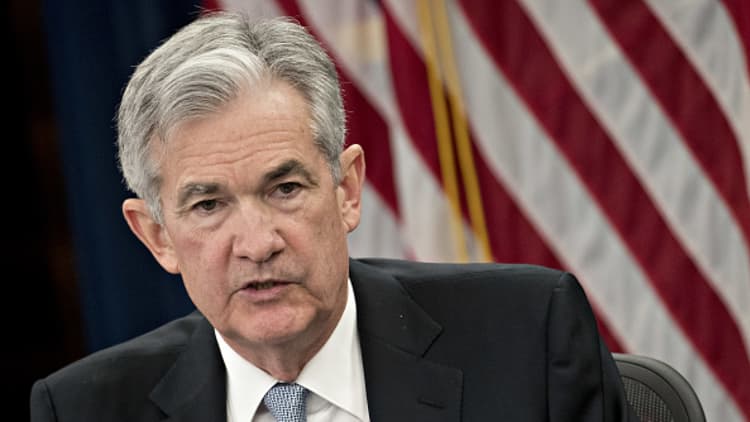Banking regulation has gotten stricter and more transparent in the days since the financial crisis, though more adjustments are likely ahead, Federal Reserve Chairman Jerome Powell said Friday.
The central bank chief cited stress testing as one particular area where openness has both helped stabilize the financial system and given the public more confidence that institutions are prepared for the next crisis.
"In the financial stability realm, the case for enhanced transparency is not just about being accountable; it is also about providing credible information that can help restore and sustain public confidence in the financial system," Powell said in a speech delivered in Stockholm at the Riksbank, Sweden's central bank, on the past and future of central banking, according to prepared remarks.

Stress tests "have placed special demands on transparency and accountability, and we have worked hard to explain them to the public. The framework is still evolving, and we will need to be open to making changes and to new ways to enhance transparency and accountability."
His speech did not delve into monetary policy and offered no clues as to how he feels about where interest rates are headed.
Instead, Powell reviewed the progress made since the financial crisis exploded in 2008. He said the new rules come amid "a time of intense scrutiny and declining trust in public institutions in many places around the world."
Since the crisis, regulators have required banks to carry increased capital levels and to lessen their risk-taking. President Donald Trump on Thursday signed a bill that rolls back some of those regulations, largely in an effort to make the rules less onerous for regional and community banks.
Powell largely praised the post-crisis steps, though he said progress has to continue in reviewing the rules to make sure they're working as intended.
"At the Fed, we are committed to transparency as we assess the efficacy and efficiency of post-crisis reforms," he said. "The post-crisis framework remains novel and unfamiliar. Some of these new policies, such as stress testing and resolution planning, are inherently complex and challenging for all involved. As a result, transparency and accountability around financial stability tools present particular challenges."
Powell promised to continue to review how the regulatory framework is communicated to the public and banks.
"While future innovations may well improve the delivery of financial services and make the system stronger, they may also contain the seeds of potential future systemic vulnerabilities. We will need to keep up with the pace of innovation, which will doubtless require changes to our approach to financial stability," he said.


